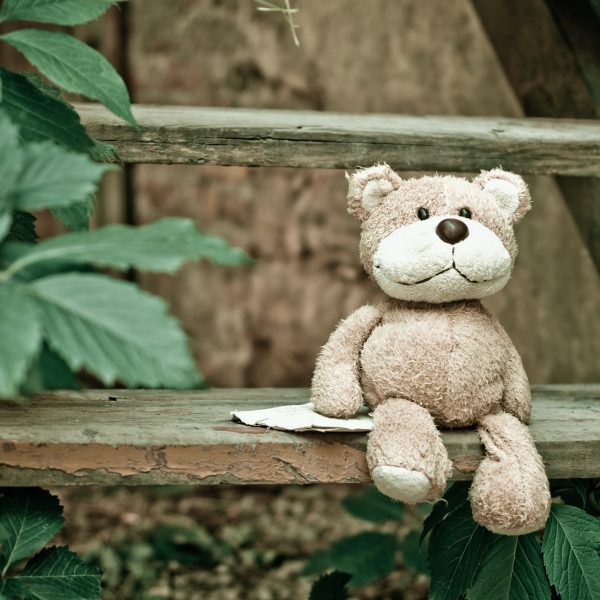When educator words hurt – how tiny moments of daily shaming add up to big problems

“Where have your manners gone?”
“He always hides when he’s wet his pants!”
“More food? Wow…don’t you think you’ve had enough to eat?”
Any of these phrases may be passed from educator to educator, parent to educator, or educator to leader on a typical day in an early childhood education and care (ECEC) setting, often without any further thought.
While on the surface these phrases may seem to be observations, comments, or ways of reminding children of “acceptable” behaviour, each of the three phrases above are actually forms of shaming children for typical bodily functions, such as hunger and toileting, or for failing to meet social norms which they may not yet understand.
Routinely shaming children not only alters their self perception, it can have dangerous ongoing effects to their mental health, can contribute to feelings of anger and sadness, and can limit their capacity to recognise and self regulate their emotions.
Shaming is something which is routinely used by adults, including educators, to keep children small and vulnerable. Sometimes this shaming is deliberate – such as through the use of behaviour charts – and designed to maintain group control.
Sometimes shaming is subconsciously transmitted from adults to children, when they are using the tools they have from their own childhood and parenting experiences. Sadly, sometimes shame is used as a way for an adult to “vent” their own emotion and self regulate.
A simple way to “self check” if a phrase or action is shaming is to ask “Would I say this to my boss in the same way?”
If you wouldn’t tell your boss to “remember your nice words” or “I wonder why you’re so grumpy this morning? Did you forget how to be nice while you were sleeping?” then it is more than likely not something you should be saying to a child.
Shame is all too common
Below are some examples of common ways in which shaming children has become part of daily practice. These examples are based on collective experiences of parents who have reflected on their experiences, however many of the examples are relevant in an early childhood context also.
- Stopping the flow of an activity, or withholding resources, including food, while waiting for “magic words”
- Asking “where are your manners?”
- Talking publicly about toileting in front of the child
- Adding shame to toilet learning e.g.: “I can’t believe it! More wet pants!”
- Complaints about lack of sleep from the child, how difficult they are to settle
- Judging the amount of food being eaten – “really? That’s a lot of food!” or “I can’t believe you’re hungry again” or “You’re so tiny! Eat up or you will never grow!”
- Tying food in with activities or rewards – “If you don’t eat your lunch you won’t be able to go outside with your friends”
- Commenting on access to the toilet – “You can’t possibly need to go again!”
What does shame look like?
Shame is one of the most powerful and negative things a child can experience and the effects can last a lifetime.
Children and young people who have difficulty managing shame may:
- Find it hard to accept responsibility for their own behaviour
- Struggle with hearing feedback or constructive criticism
- Avoid situations where they might lost out, or be unable to perform
- Find it hard to make decisions for themselves as a result of being scared to get it wrong
- Seek out others who feel the same way as them.
Shame can manifest itself in physical, psychological and emotional ways such as:
- Blushing, nausea, rapid heart rate, slumped body posture, perspiration, avoidance of eye contact, withdrawal, dizziness, and hanging of the head;
- Depression, lacking concentration, overwhelmedness, many conflicting thoughts, feeling and behaviours, forgetfulness, paranoia and other behaviours that can lead to cognitive ‘stuckedness’; and,
- Fear, loneliness, doubt, anger, dissociation, sadness, anxiety, jealousy, self-pity.
Many mental health professionals believe that their adult clients come to need support because of trauma, shame and incidents in childhood and adolescence. ECEC educators are ideally placed to set children up for a different set of outcomes, based solely on their decision to avoid shaming language.
If not shame, then what?
When educators take the position that the rights and dignity of children must be protected at all times, as required in Quality Area Five of the National Quality Standards, the decision to not tolerate or use shaming language becomes simpler.
The following tools can support a service to move toward shame-free communication.
- Self regulate, stay calm, and pause before speaking.
- Do not speak about children in front of children, unless it’s to share positivity and good thoughts. If negative comments about children, with the potential to shame, must be made, these should be done when the child is not present.
- Before speaking/commenting consider – will this build a connection with the child, or hinder it? Would I like someone to speak this way about me? Would I speak this way to someone in my peer group?
- Consciously support one another as a team to recognise moments of shaming language, and work as a team to address this. You might consider professional development, sharing of articles and resources, displays in the staff room, or other means to communicate that the shaming of children is not something the service will tolerate.
Further tools and resources
For those services who are ready to make a commitment to shame free language and behaviours when working with children, the following resources and tools may support:
- Guidance notes for authorised officers in assessing the rights and dignity of every child from ACECQA
- Shame from the Australian Childhood Foundation
- Inappropriate discipline notes from ACECQA
- Good children… at what price?
ACECQA has clearly stated that blaming or shaming a child constitutes inappropriate discipline, therefore services are strongly encouraged to work as a team and be reflective in challenging examples of blaming and shaming behaviour within themselves and their teams.
Popular

Workforce
Policy
Quality
Practice
Provider
Research
ECEC must change now, our children can’t wait for another inquiry
2025-07-02 07:47:14
by Fiona Alston

Events News
Workforce
Marketplace
Practice
Quality
Provider
Research
An exclusive “Fireside Chat” with ECEC Champion Myra Geddes
2025-07-01 11:25:05
by Fiona Alston

Workforce
Practice
Provider
Quality
Research
Supporting successful transitions: Big moves, big feelings
2025-06-26 11:00:30
by Fiona Alston













